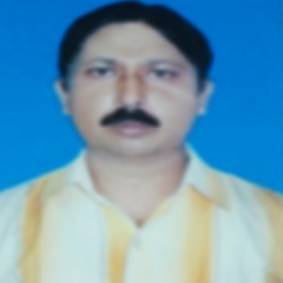
Physics is the science of nature dealing with the whole universe. It mainly involves the study of matter, energy, and their interactions. Other sciences are reliant on the concepts and techniques developed through physics. Physics extends and enhances our understanding of other disciplines, such as; agricultural, chemical, biological, environmental sciences, astrophysics and cosmology, statistics, sociology, etc. which are subjects of substantial importance to all people of the world. In addition to that Physics is considered to be most fundamental understanding of creating the domain knowledge of Engineering and Technology. It has in routes to multiple disciplines of Engineering and Technology. Especially Electronics and Communication Engineering, Computer Science and Engineering and Electrical Engineering are enriched by the fundamental researches took place in this globe and uses its juice into several breakthrough findings.
Man has been exposed to changing surroundings ever since he came into existence. He has been quite interested in learning about his surroundings and studying and explaining the things that are happening around him. He has conducted experiments and observations to gather information as a result of his interest. Through the decades, it has also been in charge of many people’s research endeavours around the globe. Systematizing and organising the knowledge acquired in this way was absolutely necessary for the good of humanity.
Science is the name given to this knowledge. So, systematised knowledge that humans have acquired through observations and experimentation may be referred to as science. Due to its vast expansion and variety of subjects, science has been further divided into many branches.
One of the most significant fields of science is chemistry. Chemistry can be summed up as the area of science that studies matter, including its properties, composition, and the changes that occur to it as a result of various activities. Several branches of chemistry have been created based on the specialised disciplines of research. Chemistry is a subdiscipline of science that deals with the study of matter and the substances that constitute it. It also deals with the properties of these substances and the reactions undergone by them to form new substances. Chemistry primarily focuses on atoms, ions, and molecules which, in turn, make up elements and compounds. These chemical species tend to interact with each other through chemical bonds. It is important to note that the interactions between matter and energy are also studied in the field of chemistry.

The study of elements and compounds’ properties, compositions, and structures, as well as how they can change and the energy that is released or absorbed during such changes, is the subject matter of the science known as chemistry.

Mathematics is the science and study of quality, structure, space, and change. Mathematicians seek out patterns, formulate new conjectures, and establish truth by rigorous deduction from appropriately chosen axioms and definitions. There is debate over whether mathematical objects such as numbers and points exist naturally or are human creations. The mathematician Benjamin Peirce called mathematics "the science that draws necessary conclusions". Albert Einstein, on the other hand, stated that "as far as the laws of mathematics refer to reality, they are not certain; and as far as they are certain, they do not refer to reality."
Through abstraction and logical reasoning mathematics evolved from counting, calculation, measurement, and the systematic study of the shapes and motions of physical objects. Practical mathematics has been a human activity for as far back as written records exist. Rigorous arguments first appeared in Greek mathematics, most notably in Euclid's Elements. Mathematics continued to develop, in fitful bursts, until the Renaissance, when mathematical innovations interacted with new scientific discoveries, leading to an acceleration in research that continues to the present day.
Today, mathematics is used throughout the world as an essential tool in many fields, including natural science, engineering, medicine, and the social sciences. Applied mathematics, the branch of mathematics concerned with application of mathematical knowledge to other fields, inspires and makes use of new mathematical discoveries and sometimes leads to the development of entirely new disciplines. Mathematicians also engage in pure mathematics, or mathematics for its own sake, without having any application in mind, although practical applications for what began as pure mathematics are often discovered later. This subject is having a huge impact on most of the Engineering streams and Technological branches like Electronics and Communication Engineering, Computer Science and Engineering, Artificial Intelligence, Electrical Engineering, Production and Mechanical Engineering and most recent filed like Mechatronics.
Assuming humans have unlimited wants within a world of limited means, economists analyse how resources are allocated for production, distribution, and consumption. The study of microeconomics focuses on the choices of individuals and businesses, and macroeconomics concentrates on the behavior of the economy as a whole, on an aggregate level. One of the earliest recorded economists was the 8th-century B.C. Greek farmer and poet Hesiod who wrote that labor, materials, and time needed to be allocated efficiently to overcome scarcity. The publication of Adam Smith's 1776 book, An Inquiry Into the Nature and Causes of the Wealth of Nations sparked the beginning of the current Western contemporary economic theories.
Microeconomics studies how individual consumers and firms make decisions to allocate resources. Whether a single person, a household, or a business, economists may analyze how these entities respond to changes in price and why they demand what they do at particular price levels. Microeconomics analyzes how and why goods are valued differently, how individuals make financial decisions, and how they trade, coordinate, and cooperate. Within the dynamics of supply and demand, the costs of producing goods and services, and how labour is divided and allocated, microeconomics studies how businesses are organized and how individuals approach uncertainty and risk in their decision-making.

Macroeconomics is the branch of economics that studies the behaviour and performance of an economy as a whole. Its primary focus is the recurrent economic cycles and broad economic growth and development. It focuses on foreign trade, government fiscal and monetary policy, unemployment rates, the level of inflation, interest rates, the growth of total production output, and business cycles that result in expansions, booms, recessions, and depressions. It is possible using aggregate indicators, economists use macroeconomic models to help formulate economic policies and strategies.
An economist studies the relationship between a society's resources and its production or output, and their opinions help shape economic policies related to interest rates, tax laws, employment programs, international trade agreements, and corporate strategies. Economists analyse economic indicators, such as gross domestic product and the consumer price index to identify potential trends or make economic forecasts. Engineers do need to have good knowledge in Economics both Micro and Macro so as to produce technological products with Economy of Scale such that those could be properly marketed in reasonable price.

Although it is generally accepted that English is not one of the hardest languages to learn, its fast dissemination involves much more than this. It involves historical facts. The rise of the USA after the second Great War was the first step for an economic and cultural supremacy in the world. The position of the English language was consolidated by “the American way of life” portrayed in movies. In addition to that, the technologic innovation in that period was also important for the establishment of the American influence worldwide and besides that, it was extremely important and necessary to assure that influence during the cold war.
Nowadays English is the world’s second most spoken language, behind Mandarin only, and it is the most used language in international markets, in scientific resources and in the internet. English is the most learned and spoken foreign language in the world and the number of non-native speakers grow year after year. Engineers and Technologists need to communicate with rest of the World in an efficient and effective way and that is the prime reason why they must have a sound knowledge in communicative English, a good expertise in grammar and construction both. AGEMC invites all the aspirant students to focus on getting supremacy in this language from Day1 of their stay of four years which will definitely help them to reach out and shape their success stories.
Introducing our expert faculty team
Meet our accomplished faculty - passionate educators and industry experts dedicated to shaping futures through knowledge and guidance.

Dr. Dilip Kumar Das
Head of Department
Ph.D in Economics (NBU)
- dilip[dot]das[at]bs[dot]agemc[dot]ac[dot]in

Dr. Arijit Dutta
Assistant Professor in ME
B.Tech in M.E (KGEC), M.Tech in ME (IIT KGP) and Ph.D in Engg. (JU)
- E-Mail: arijit[dot]dutta[at]bs[dot]agemc[dot]ac[dot]in

Dr. Amarjit Tamang
Assistant Professor in Mathematics
Ph.D in Mathematics (NBU)
- amarjit[dot]tamang[at]bs[dot]agemc[dot]ac[dot]in

Mr. Sajal Basak
Assistant Professor of Physics
M.Sc. in Physics (NBU)
- sajal[dot]basak[at]bs[dot]agemc[dot]ac[dot]in

Dr. Subhas Chandra Maity
Associate Professor in Chemistry
Ph.D in Chemistry (IIT KGP)
- subhas[dot]maity[at]bs[dot]agemc[dot]ac[dot]in

Dr. Partha Sarathi Debnath
Associate Professor in Physics
Ph.D in Physics
- partha[dot]sarathi[dot]debnath[at]bs[dot]agemc[dot]ac[dot]in

Dr. Samit Pramanik
Assistant Professor in Chemistry
PhD in Chemistry (JU)
- samit[dot]pramanik[at]bs[dot]agemc[dot]ac[dot]in

Dr. Ursashi Roy
Assistant professor in Mathematics
BSc (JU), MSc (JU), PhD (IISER Mohali)
- ursashi[dot]roy[at]bs[dot]agemc[dot]ac[dot]in

Mr. Mithun Barman
Assistant Professor in English (Additional Duty at AGEMC)
B.A.(ABNSC), M.A.(IGNOU)
- mithunbarmaneng90[at]gmail[dot]com

Dr. Bapi Ghosh
Assistant Professor in Biology (Additional Duty at AGEMC)
B.Sc.(Krishnanagar Government College) , M.Sc.(Kalyani university) , PHD(Kalyani university)
- bpghosh88[at]gmail[dot]com
